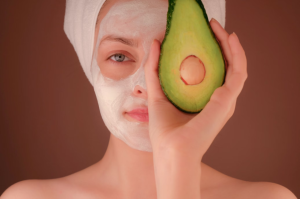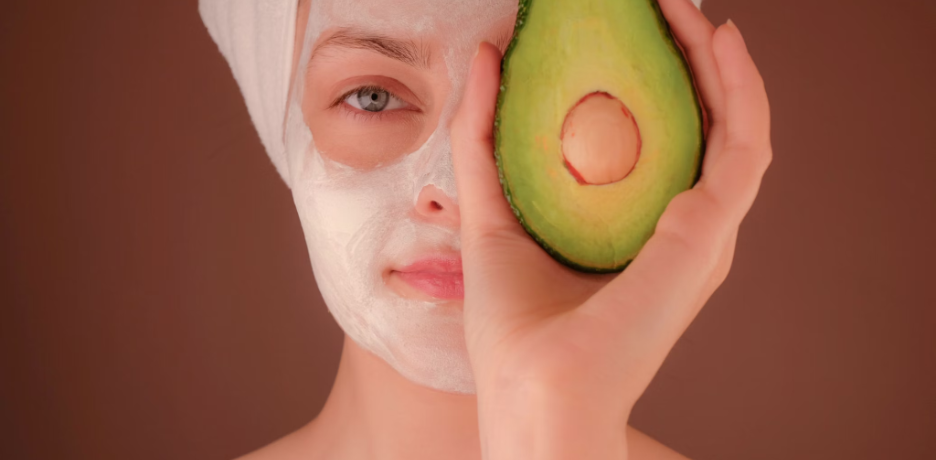How to nurture your skin’s health and beauty

Nurturing your skin can improve your appearance and boost your holistic health. Skin-friendly habits, like drinking enough water and moisturizing, can give your mental well-being some much-needed support.
However, many skin-care products can be expensive. It’s all too easy to wrack up a bill in the hundreds when at a cosmetics store, and you may find that many salves and solutions aren’t quite as effective as the branding would have you believe.
Rather than breaking the bank on moisturizers and collagen creams, make lifestyle changes to nurture your skin’s health and beauty. This may mean you engage in more frequent exercise or start journaling to improve your stress management. Making holistic changes to boost your health will help you learn to accept the skin you are in and increase your overall confidence.
Diet
A balanced diet is the backbone of a healthy, happy life. Eating a range of fresh produce, whole grains, and lean proteins will give you energy and support your long-term health. However, many of us reach for fast food and booze when we’re feeling stressed or anxious. This has a net negative effect on your skin, as high-fat foods can worsen acne.
Rather than responding to stress with poor dietary choices, consider slowing down and eating skin-friendly foods. This means you’ll need to eat at least five portions of fruits and vegetables and should aim to get your fill of vitamin C through foods like blackcurrants, blueberries, and broccoli. You’ll also want to eat healthy fats, from sources like avocado, and phytoestrogens like tofu and tempeh.
Lifestyle
Your lifestyle has a significant impact on your health, well-being, and the appearance of your skin. Even factors like living in a city with high air pollution can undermine your skin’s health due to the risk of dehydration and the disruption of your skin’s microbiome. This means you must consider the holistic factors that may be undermining your overall skin health and beauty.
If you suspect that your lifestyle is impacting your skin’s appearance and health, consider speaking to a dermatologist. Dermatologists can diagnose common skin conditions like:
- Acne: an umbrella term for clogged pores, blackheads, and pimples;
- Eczema: redness, scaly patches, blisters and inflammation;
- Melasma: skin exposure causing dark discoloration;
- Warts: medically harmless growths caused by a virus;
- Vitiligo: a loss of the brown pigmentation in the skin.
Dermatologists may be able to identify the root cause of your skin condition and should be able to suggest changes to your lifestyle. They’ll also be able to prescribe medication that can help you reclaim control over your skin health. This is key, as dermatological interventions can make the rest of your skincare routine that much more effective.
Skincare Routine
A good skincare routine shouldn’t require hours of scrubbing, moisturizing, and cream application. In fact, the best skincare routines are simple and easily replicable. If you use makeup, your basic morning skincare routine should include:
- Cleanser to remove grime;
- Moisturizer to hydrate the skin;
- Sunscreen to protect against sun damage.
Then, in the evening, a basic skincare routine may include:
- Makeup remover;
- Cleanser to remove remaining dirt;
- Spot treatment if you have acne;
- Sleep mask to assist with overnight hydration.
It’s important to note that this routine cannot counteract the damage incurred by an unhealthy lifestyle. Rather than hyper-focusing on the differences between cleansers and collagen creams, try to invest your effort into improving your holistic health and well-being as part of your skincare routine. This will aid your stress management efforts, too, which will innately improve your skin’s health.
Stress Management
According to the American Academy of Dermatology (AAD), stress shows up on your skin. When you’re feeling burnt out and overwhelmed, you’re far more likely to experience inflammation and will see a build-up of oils that will worsen your acne. Stress can also trigger skin conditions like psoriasis and eczema.
The AAD recommends dealing with your stress directly with interventions designed to help you let off some steam. Consider adopting healthy lifestyle changes like:
- Meditation;
- Acupuncture;
- Positive visualization;
- Breathwork;
- Yoga and tai chi.
Adopting these healthy habits can help you become more resilient and manage your stress more effectively. This can be deeply empowering on a personal level and will help you nurture your skin’s health and beauty.
Conclusion
Protecting your health and wellness is key if you want your skin to look great in the years to come. Proactive measures, like getting enough sleep and staying hydrated, will help you fight off stress-related skin flare-ups and reduce the amount of oil in your glands. Just be sure to follow up with a simple skincare routine to whisk away the grime and keep your skin moisturized throughout the day.
Tags: behavioral health, crossroads health, health and beauty, healthy skin, mental health, mental health awareness, mental health treatment, Mentor Ohio, nurture skin, self care, skin care

